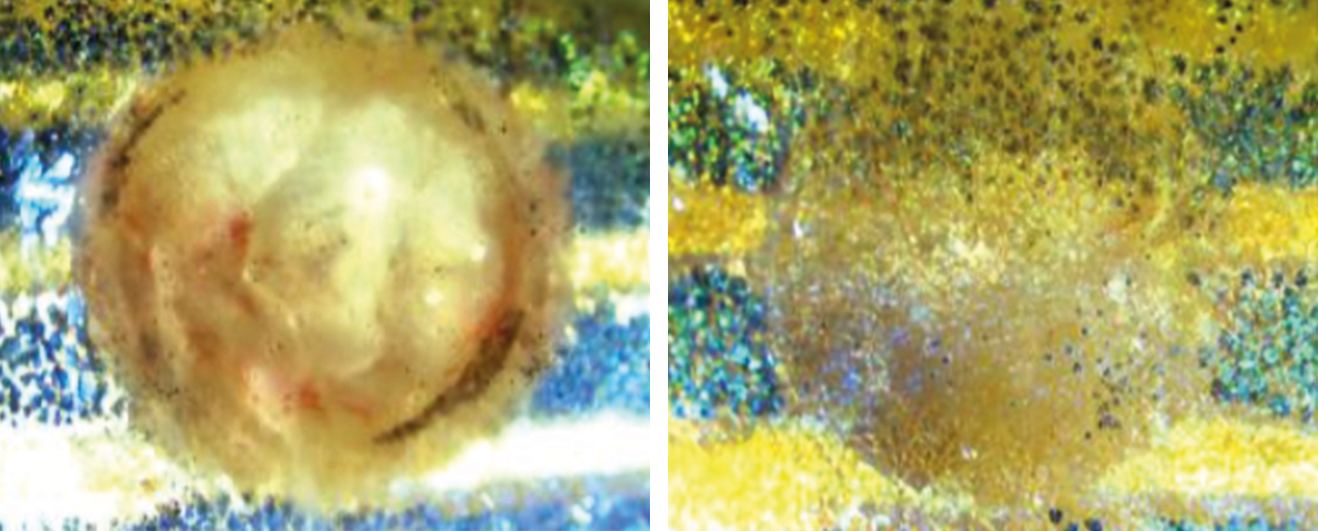Blog | Reading Time 3 minutes
Boosting fish immunity and skin protection
Along the fish production cycle, many factors can destabilize the animal’s resilience and progressively develop into complex health situations. A key focus of Lallemand Animal Nutrition activity in aquaculture is on the promotion of the fish’s natural defenses using microbial-based ingredients. Our team presented at the latest European Aquaculture Society meeting in Madeira, October 4-7, three studies supporting the role of yeast-based functional ingredients on fish’s natural defenses, namely immunity and skin protection.
Mitigating the impact of repetitive interventions in seawater salmon
The first study is about the potential to mitigate the impact of repetitive interventions on the health and mucosal robustness of Atlantic salmon post-smolt using functional
ingredients. The model mimicked the interventions commonly applied on commercial sea sites to control parasitic infection. The test compound combined a multi-strain yeast fraction product with a melon pulp concentrate rich in the primary antioxidant superoxide dismutase (MELOFEED). The study was performed at the University of Stirling under the guidance of Pf. Hervé Migaud and supported by Scottish Aquaculture Innovation Centre (SAIC).
- The study documented a clear impact of repetitive-stress exposure across physiological and mucosal health markers.
- The supplemented fish showed a lower level of chronic stress and better maintenance of the skin mucosal barrier and antioxidant status under repetitive stress.
The authors concluded the dietary supplement “was able to mitigate the pernicious effects of repetitive handling and associated losses of mucosal robustness and recovery capacity. This is expected to have clear benefits at animal and farm level over the production cycle.”
Improved skin and mucosal health
Using an established mechanical skin wound model in adult zebrafish2. , the multi-strain yeast fractions fed continuously before dermal wounding was shown to promote early wound healing. Supplementation favored, in particular, the formation of new connective tissue at the wound bed which was associated with improved (anti)inflammatory and tissue remodeling biomarkers profile.
Another study conducted with a research partner, the University of Plymouth, United Kingdom, confirmed the effects of the multistrain yeast fractions on the mucosal barrier and immunity of the gill, skin, and gut of salmonids (rainbow trout juveniles)3. Results showed the mucosal barrier defenses were improved.

Zebrafish wound healing model. Top: dermal wound; bottom: the wound healing process (dermal wound diameter: 1 mm)
These three new studies offer further evidence that natural microbial solutions present an ocean of opportunities to sustain fish performance and aquaculture acceptance.
1Functional nutrition mitigates the impact of repetitive nonmedicinal interventions in seawater Atlantic salmon. Leclercq, E.; Rawling, M., Valdenegro, V., Aasum, E., Vera, L.M., Castex, M., Migaud, H. Oral presentation, Aquaculture Europe 21, Madeira, October 4-7, 2021
2Yeast-based ingredients as early promoters of mechanical skin
wound healing. A comparative study using a zebrafish model. Leclercq, E., Edirisinghe, S.L., Nikapitiya, C., Kim, C.H., Castex, M., De Zoysa, M. Poster. Aquaculture Europe 21, Madeira, October 4-7, 2021
3Effect of a dietary bacteria and yeast-based paraprobiotics and their combination upon the mucosal barrier defenses and immunity of juvenile rainbow trout (Oncorhynchus mykiss) Pontefract, N., Rawling, M., Leclercq, E., Castex M., Merrifield, D. Poster. Aquaculture Europe 21, Madeira, October 4-7, 2021
Published Nov 23, 2021 | Updated May 30, 2023
Related articles
Need specific information?
Talk to an expert